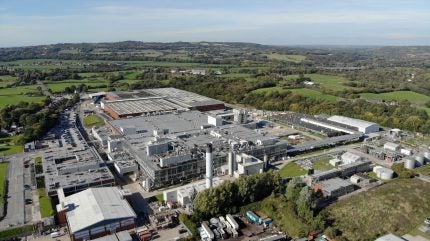
As consumers increasingly look to purchase sustainable products, Kraft Heinz has made what it calls “an important step forward” in its efforts to reduce carbon emissions.
The company has signed an agreement with Carlton Power, a UK energy infrastructure development company, to explore the potential development of a 20MW green hydrogen plant at its Kitt Green manufacturing facility in Wigan in north-west England.

Discover B2B Marketing That Performs
Combine business intelligence and editorial excellence to reach engaged professionals across 36 leading media platforms.
“The Wigan project is contingent on securing local planning, securing government funding, and then a final investment decision will be made,” Carlton Power projects director Eric Adams tells Just Food.
However, the move is significant, he says, as “other food companies wishing to decarbonise their operations, could follow the example of Kraft Heinz”.
One of the largest food processing plants in Europe, Kitt Green produces 250,000 tonnes of food annually, including Heinz’ famous baked beans.
A spokesperson for Kraft Heinz told Just Food that the development of the green hydrogen plant would enable the yearly production of around 2,000 tonnes of hydrogen, translating into 80GWh of capacity. This would meet 50% of the manufacturing plant’s annual natural gas demand and reduce its carbon emissions by an estimated 16,000 tonnes.

US Tariffs are shifting - will you react or anticipate?
Don’t let policy changes catch you off guard. Stay proactive with real-time data and expert analysis.
By GlobalDataConsumers want to see decarbonisation
A recent analysis of UK food product sales identified that companies across the industry are looking to respond to consumer preferences for sustainable products.
GlobalData’s Global Consumer Survey Q4 2023 found that 64% of UK consumers consider sustainable and environmentally friendly products either “essential” or “nice to have”.
Explaining how this has translated into action at Kraft Heinz and in the wider industry, Ramsey Baghdadi, consumer analyst at GlobalData tells Just Food: “The decision from Heinz to launch its first green hydrogen project in the UK aligns closely with sustainable purchase motivations from a large local consumer base.
“Government bodies in Europe are also campaigning for greener production. Policy deadlines, such as methane emission reduction forest protection by 2030, have set a tone for companies to reduce emissions.”
GlobalData – Just Food‘s parent company – found that the number of companies focusing on social responsibility in their strategies increased by 2% between 2018 and 2022, suggesting that policies and consumer habits are driving change in the industry.
However, a 2023 study identified that food processing, production and consumption are still responsible for 20% of anthropogenic greenhouse gas (GHG) emissions, with the figure expected to rise to 30% by 2050. In total, the food supply chain is responsible for between 9,800 and 16,900 million tonnes of CO2 annually.
In 2021, Kraft Heinz shared its goal to reach net zero GHG emissions across its operations and global supply chain by 2050.
“Sharing best practice across our global operations will play a key role in meeting our ESG goals,” a Kraft Heinz spokesperson says. “Partnering with Carlton Power to develop our first renewable hydrogen energy project globally, is an important first step. We hope to see more projects like these in the future, but, right now, we’re focused on Kitt Green – securing local planning and UK government funding via the Hydrogen Production Business Model (known as Hydrogen Allocation Round 2 – HAR2).”
Could green hydrogen change food manufacturing?
Kraft Heinz’ proposed green hydrogen plant at Kitt Green will produce hydrogen with an electrolyser using electricity generated from sources of renewable energy, primarily wind and solar power.
“Green hydrogen is produced by using sources of renewable electricity – such as wind and solar,” explains Adams. “The renewable electricity powers an electrolyser, that splits water into hydrogen and oxygen. Green hydrogen produces no greenhouse gas emissions, so provides an alternative to fossil fuels, like natural gas.”
It’s a promising alternative for energy-intensive industries, particularly for facilities currently reliant on natural gas. This is because the shift to green hydrogen requires minimal modifications to existing equipment.
Adams continues: “Many industrial and manufacturing processes require reliable, high-temperature heat to operate but these processes cannot always be decarbonised by electrification without expensive modifications to their equipment and sometimes prohibitive operational costs.”
At Kitt Green, the initial phase will use a 20MW electrolyser, capable of producing 2000 tonnes (80GWh) of hydrogen annually. However, Kraft Heinz’ spokesperson notes that “future phases may be brought forward to meet additional demand for hydrogen in the local area.”
Considering the potential impact of green hydrogen at Kitt Green, Kraft Heinz’ spokesperson adds: “The potential impact of this project if scaled up across our company and industry could be huge. It’s important that projects like this are brought forward, especially in manufacturing where we see real potential for decarbonisation.”





